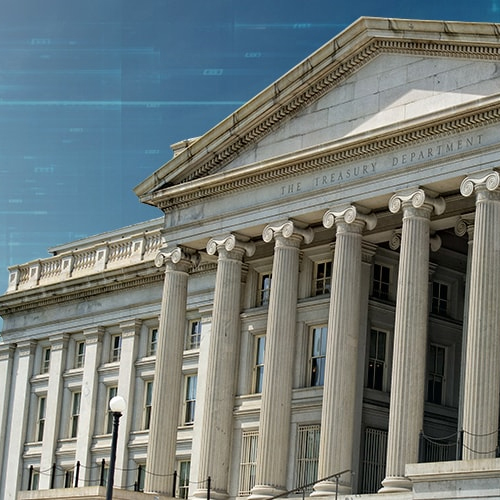The Bureau of Fiscal Services plays a pivotal role in managing and overseeing financial operations for government entities, ensuring transparency and accountability in public spending. As part of the federal government, this organization is responsible for a variety of fiscal responsibilities, including managing debts, facilitating payments, and maintaining accurate financial records. By understanding the intricacies of the Bureau's functions, individuals and organizations can gain valuable insights into the financial backbone of public administration.
For anyone interested in government finance, the Bureau of Fiscal Services offers a window into how federal funds are allocated and managed. Its primary objective is to ensure that taxpayer money is utilized efficiently and effectively. By adhering to strict fiscal policies and procedures, the Bureau ensures that financial operations align with legislative mandates and public expectations. This article dives deep into the Bureau's operations, exploring its history, responsibilities, and future prospects.
As we delve deeper into the world of fiscal governance, it becomes clear that the Bureau of fiscal services is not just a bureaucratic entity but a cornerstone of financial integrity. Through its innovative approaches and commitment to transparency, it continues to shape the financial landscape of the nation. Whether you're a student, professional, or simply curious about government finance, this article aims to provide comprehensive insights into the Bureau's operations.
Read also:Tampa International Airport Hours Your Ultimate Guide For Travel Planning
What Are the Primary Functions of the Bureau of Fiscal Services?
The Bureau of Fiscal Services handles a wide array of financial responsibilities that are essential for the smooth functioning of government operations. These include managing federal loans, administering payment systems, and overseeing debt collections. By consolidating these functions under one umbrella, the Bureau ensures that financial processes are streamlined and efficient. Its role extends beyond mere bookkeeping; it involves strategic financial planning and policy implementation.
One of the key functions of the Bureau is to facilitate payments for federal programs. This includes disbursing funds to beneficiaries, contractors, and other entities that rely on federal support. Through advanced payment systems, the Bureau ensures that funds are delivered accurately and on time, reducing the risk of errors or delays. Additionally, the Bureau plays a critical role in managing federal debt, working closely with the Treasury to monitor and reduce the national debt.
How Does the Bureau of Fiscal Services Ensure Financial Transparency?
Transparency is a cornerstone of the Bureau's operations, and it employs various strategies to ensure that financial activities are open and accountable. One such strategy is the implementation of public reporting systems that provide detailed information on federal spending. These reports are accessible to the public, enabling citizens to track how their tax dollars are being used.
Moreover, the Bureau employs rigorous auditing processes to verify the accuracy of financial records. By conducting regular audits, it ensures that all transactions are documented correctly and comply with federal regulations. This commitment to transparency not only builds public trust but also enhances the efficiency of government operations.
Why Is the Bureau of Fiscal Services Important for Government Finance?
The importance of the Bureau of Fiscal Services in government finance cannot be overstated. It serves as the financial backbone of numerous federal programs, ensuring that funds are managed responsibly and efficiently. By overseeing payment systems, managing debts, and implementing fiscal policies, the Bureau plays a vital role in maintaining the financial health of the nation.
In addition to its operational responsibilities, the Bureau also contributes to the development of fiscal policies that guide government spending. Through collaboration with other government agencies, it helps shape the financial landscape of the country, ensuring that resources are allocated where they are most needed. This strategic approach to fiscal management is crucial for addressing both current and future financial challenges.
Read also:Discover The Ultimate Shopping Destination Victorville Shopping Mall
What Challenges Does the Bureau of Fiscal Services Face?
Like any large organization, the Bureau of Fiscal Services encounters several challenges in its day-to-day operations. One of the primary challenges is managing the increasing complexity of financial transactions in a rapidly evolving digital landscape. As technology continues to advance, the Bureau must adapt its systems and processes to keep pace with changing demands.
Another challenge is maintaining public trust in the face of fiscal uncertainties. With concerns about national debt and government spending, the Bureau must work diligently to ensure that its operations are transparent and accountable. This involves not only implementing robust financial systems but also engaging with the public to address their concerns and questions.
How Can the Bureau of Fiscal Services Improve Its Operations?
To enhance its operations, the Bureau of Fiscal Services can adopt several strategies that leverage technology and innovation. One approach is the implementation of advanced data analytics tools to improve the accuracy and efficiency of financial reporting. By analyzing large datasets, the Bureau can identify trends and patterns that inform better decision-making.
Additionally, the Bureau can invest in employee training and development to ensure that staff members are equipped with the skills needed to manage complex financial operations. This includes training in digital technologies, cybersecurity, and financial management best practices. By prioritizing workforce development, the Bureau can improve its overall performance and effectiveness.
What Innovations Is the Bureau of Fiscal Services Exploring?
Innovation is a key driver of progress for the Bureau of Fiscal Services, and it is actively exploring new technologies and methodologies to enhance its operations. One area of focus is the use of blockchain technology to improve the security and transparency of financial transactions. By implementing blockchain, the Bureau can create immutable records of all transactions, reducing the risk of fraud and errors.
Another area of innovation is the development of automated payment systems that leverage artificial intelligence and machine learning. These systems can process payments faster and more accurately than traditional methods, reducing the workload on staff and improving service delivery. By embracing innovation, the Bureau can stay ahead of the curve in an ever-changing financial landscape.
Who Oversees the Operations of the Bureau of Fiscal Services?
The operations of the Bureau of Fiscal Services are overseen by a dedicated team of financial experts and government officials who ensure that all activities align with federal regulations and policies. This oversight involves regular reviews of financial processes, performance metrics, and compliance with legal requirements. By maintaining a high level of scrutiny, the Bureau ensures that its operations remain transparent and accountable.
In addition to internal oversight, the Bureau is subject to external audits and evaluations by independent agencies. These evaluations provide an objective assessment of the Bureau's performance and identify areas for improvement. Through this combination of internal and external oversight, the Bureau maintains its reputation as a trusted financial steward.
What Are the Future Prospects for the Bureau of Fiscal Services?
The future of the Bureau of Fiscal Services looks promising as it continues to evolve and adapt to changing financial landscapes. With advancements in technology and increasing demands for fiscal accountability, the Bureau is well-positioned to play a pivotal role in shaping the financial future of the nation. Its commitment to innovation, transparency, and efficiency ensures that it remains a key player in government finance.
Looking ahead, the Bureau is likely to expand its use of digital technologies to enhance its operations further. This includes the adoption of cloud computing, artificial intelligence, and advanced data analytics tools. By embracing these technologies, the Bureau can improve its ability to manage complex financial transactions and provide valuable insights into government spending.
How Can Individuals Engage with the Bureau of Fiscal Services?
Individuals who wish to engage with the Bureau of Fiscal Services have several avenues to do so. They can access public reports and financial data through the Bureau's website, providing valuable insights into federal spending and financial operations. Additionally, the Bureau offers opportunities for public feedback and participation in discussions about fiscal policies and initiatives.
For those interested in careers within the Bureau, there are numerous opportunities to join a team of dedicated professionals who are shaping the financial future of the nation. By pursuing careers in finance, accounting, and related fields, individuals can contribute to the Bureau's mission of promoting fiscal responsibility and transparency.
Conclusion: The Bureau of Fiscal Services in a Nutshell
The Bureau of Fiscal Services is a vital component of the federal government's financial infrastructure, ensuring that public funds are managed responsibly and transparently. Through its commitment to innovation, transparency, and efficiency, the Bureau continues to play a crucial role in shaping the financial landscape of the nation. As it looks to the future, the Bureau remains dedicated to addressing the financial challenges of tomorrow while maintaining its reputation as a trusted financial steward.
Table of Contents
- What Are the Primary Functions of the Bureau of Fiscal Services?
- How Does the Bureau of Fiscal Services Ensure Financial Transparency?
- Why Is the Bureau of Fiscal Services Important for Government Finance?
- What Challenges Does the Bureau of Fiscal Services Face?
- How Can the Bureau of Fiscal Services Improve Its Operations?
- What Innovations Is the Bureau of Fiscal Services Exploring?
- Who Oversees the Operations of the Bureau of Fiscal Services?
- What Are the Future Prospects for the Bureau of Fiscal Services?
- How Can Individuals Engage with the Bureau of Fiscal Services?
- Conclusion: The Bureau of Fiscal Services in a Nutshell


